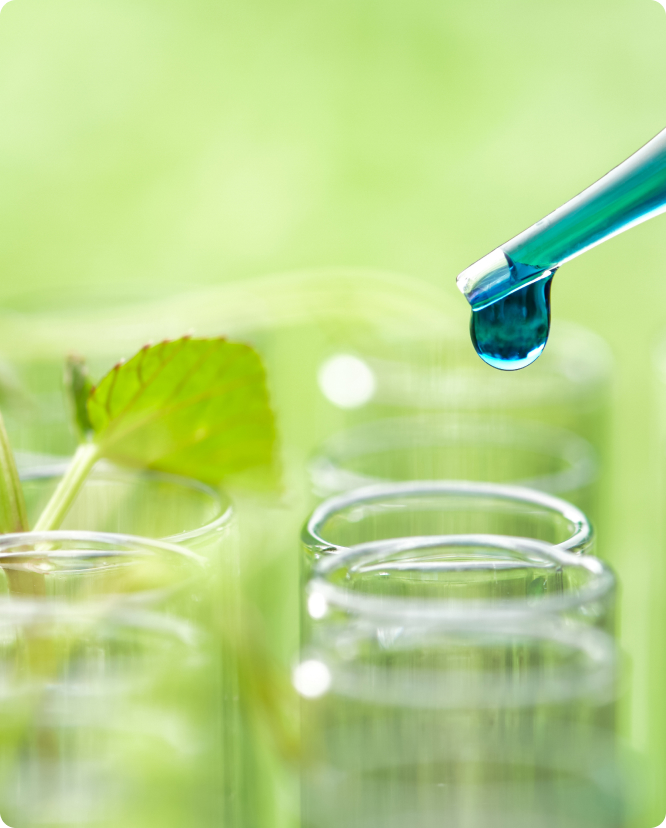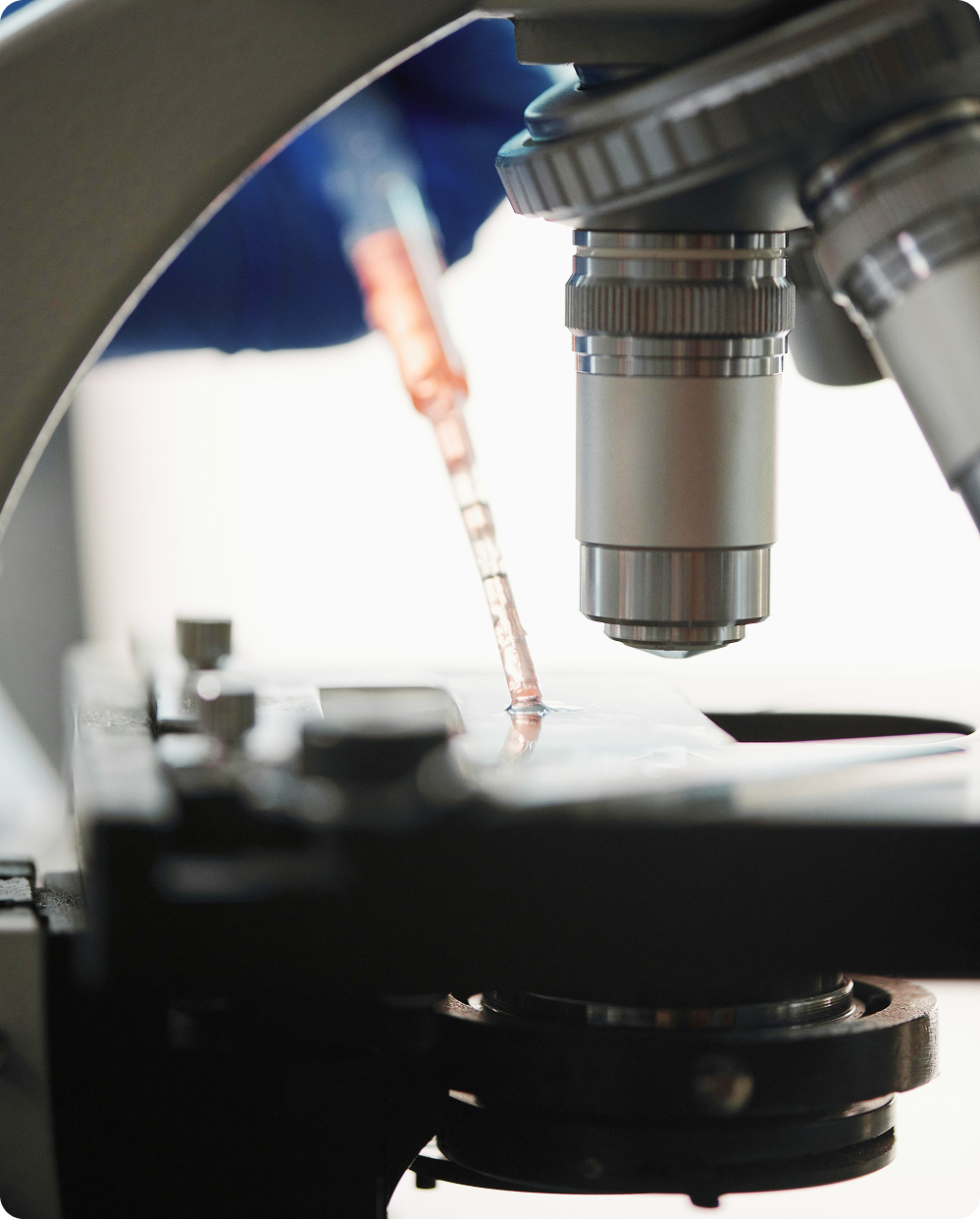Does sex sometimes hurt even when you're totally aroused and ready to go?
If you're nodding along, you're definitely not alone. Research shows that painful sex affects about 7.5% of sexually active women. And here's the thing: for most of us, the culprit isn't some mysterious medical condition. It's actually something way more straightforward - vaginal dryness.
When researchers dug into what's really behind painful sex, they found something pretty eye-opening. Vaginal dryness increased your odds of experiencing pain during intercourse by nearly 8 times compared to women without dryness [1].
That's not just a minor inconvenience. That's a major factor affecting your comfort, pleasure, and intimate relationships.
But here's the good news: once you understand why dryness causes pain and learn about what actually works, you can take real steps toward more comfortable intimacy. We're going to break down the science behind the dryness-pain connection, bust some myths about household "remedies" that can actually make things worse, and talk about solutions that actually support your vaginal health.
Quick note: What exactly is vaginal dryness?
Vaginal dryness is more than just not being "wet enough" during sex. It's when your vaginal tissues don't maintain adequate moisture for comfort during daily activities AND sexual intimacy. This can happen because of hormonal changes, medications, stress, or other factors that mess with your vaginal ecosystem.
For the full deep dive on vaginal dryness (including all the causes, symptoms, and treatment options), check out our comprehensive guide on understanding vaginal dryness.
The science behind why dryness = pain
Let's talk about what's actually happening when your body's natural lubrication system isn't working optimally.
Picture this: well-lubricated vaginal tissues are like silk gliding smoothly. There's minimal friction and zero discomfort. But when dryness happens? That same interaction becomes like rough fabric rubbing against your most sensitive skin.
Not fun.
During sexual arousal, your body typically increases blood flow to your vaginal area. This causes fluid to seep through your vaginal walls and create natural lubrication through something called transudation. When this system gets disrupted (whether by hormonal changes, medications, stress, or other factors), you end up with inadequate lubrication. And that sets the stage for friction and discomfort.
Here's where it gets worse: the friction from insufficient lubrication doesn't just feel uncomfortable in the moment; it can also cause long-term damage, creating microscopic tears in your delicate vaginal tissues.
These tiny injuries create additional sensitivity and can make your next sexual encounter even more uncomfortable. It becomes this cycle where pain leads to anxiety about sex, which can further reduce your natural lubrication.
The research backs this up big time. A study published in the British Journal of Obstetrics and Gynaecology looked at over 6,600 sexually active women and found that vaginal dryness was THE most strongly associated factor with painful sex, with an age-adjusted odds ratio of 7.9 [1].
Translation: women experiencing vaginal dryness were nearly eight times more likely to report painful intercourse. That's a massive connection that shows just how central adequate lubrication is to sexual comfort.
Bottom Line: Vaginal dryness creates this awful cycle where inadequate lubrication leads to friction during sex, potentially causing microscopic tissue damage that increases sensitivity and pain. The research is clear: women with vaginal dryness are nearly 8 times more likely to experience painful sex.
Wait, but what about other causes of painful sex?
Before we dive deeper into dryness solutions, let's acknowledge the elephant in the room. Vaginal dryness is the most common cause of painful sex, but it's not the only one.
Other conditions like vaginismus (when your pelvic floor muscles involuntarily tighten), endometriosis, pelvic inflammatory disease, or even certain infections can also cause pain during intercourse. Some people experience painful sex due to psychological factors, past trauma, or anatomical variations.
The key difference? These other causes often have additional symptoms beyond just pain during penetration. If you're dealing with persistent pelvic pain outside of sex, severe cramping, unusual discharge, or if addressing dryness doesn't help your symptoms, definitely talk to a healthcare provider.
But for the majority of people experiencing painful sex, especially if it's primarily during penetration and you're not dealing with other symptoms, dryness is likely your main culprit.
Why household "solutions" actually make things worse
Okay, let's talk about the stuff you probably have in your bathroom cabinet right now.
When you're dealing with vaginal dryness, it's super tempting to reach for products you already have at home. We get it, you want relief, and you want it now. But here's the thing: many common household items that people use as DIY lubricants can actually make the problem worse or create entirely new issues.
Let's break down why.
Petroleum jelly and baby oil: The irritation trap
Vaseline and baby oil might seem like obvious choices for lubrication. They're slippery, they're accessible, and they seem harmless enough.
But they're actually among the worst options for your vaginal health.
According to Cleveland Clinic gynecologists, "Baby oil and petroleum jelly (Vaseline®) can irritate delicate tissues, especially in your vagina" [2]. The problem is how these products interact with your vaginal environment.
Petroleum jelly creates a barrier that can trap bacteria and mess with your vagina's natural self-cleaning mechanisms. Your vaginal tissues are designed to maintain this delicate balance of beneficial bacteria and optimal pH levels. Petroleum products are basically foreign substances that can disrupt this entire ecosystem and increase your infection risk.
Not what you want when you're already dealing with discomfort.
Vegetable oils and lotions: pH problems galore
"But what about natural oils?" you might be thinking. "Surely cooking oils are better than petroleum products?"
While vegetable oils might seem more "natural," they come with their own set of problems when used vaginally. Many cooking oils can alter your vaginal pH, potentially disrupting the acidic environment that beneficial Lactobacillus bacteria need to thrive.
Hand lotions and body moisturizers are even worse. As Cleveland Clinic experts point out, "Skin moisturizers often contain fragrances and other irritating ingredients. Plus, they tend to dry out too quickly if you try to use them as lube" [2].
Many lotions also have osmolality levels that can actually draw moisture OUT of your vaginal tissues. So you're literally making the dryness worse while potentially introducing irritating ingredients to your most sensitive areas.
Coconut oil: The "natural" misconception
Here's where things get interesting (and controversial).
Coconut oil has become incredibly popular as a DIY lubricant, largely because of this assumption that "natural equals safe." And look, we get the appeal. Coconut oil is natural, it's got antimicrobial properties, and it feels good initially.
But here's what the research is starting to show us: just because something is natural doesn't automatically make it appropriate for your vagina.
The main concern with coconut oil is its potential to disrupt your vaginal microbiome, that delicate ecosystem of beneficial bacteria that keeps your vaginal health in check. While we don't have extensive human studies specifically on coconut oil's effects on vaginal health, some research suggests that certain oils can alter bacterial composition in ways that might not support optimal vaginal health [3].
Your vagina maintains a naturally acidic pH (typically between 3.8 and 4.5) that supports beneficial Lactobacillus bacteria while keeping harmful organisms at bay. When this balance gets disrupted, it can lead to bacterial vaginosis, yeast infections, or other complications.
The "natural equals safe" assumption is particularly tricky because it can lead you to use products more frequently or in larger quantities than you would synthetic alternatives, potentially amplifying any negative effects.
The bottom line on household products: Your vagina is not the place to experiment with DIY solutions. What works for your skin doesn't necessarily work for your vaginal tissues.
Evidence-based solutions that actually work
Alright, enough about what NOT to use. Let's talk about what actually works.
The good news is there are scientifically-backed solutions for vaginal dryness that work WITH your body's natural systems instead of against them. The key is understanding the difference between temporary relief and ongoing support.
Lubricants vs. moisturizers: What's the difference?
This is where a lot of people get confused, so let's clear it up.
Vaginal lubricants are your short-term solution. They provide immediate relief during sexual activity but don't address the underlying tissue health. Think of them as your "right now" fix when you need extra glide.
Vaginal moisturizers are your long-term strategy. They're formulated to provide ongoing hydration and support to your vaginal tissues, addressing the underlying dryness that's contributing to your discomfort. These are typically used regularly, not just during sexual activity.
You might need both, depending on your situation.
The science of hyaluronic acid (and why it's kind of amazing)
One of the most promising ingredients in evidence-based vaginal moisturizers is hyaluronic acid (HA). And honestly? This stuff is pretty incredible.
Hyaluronic acid is a naturally occurring substance with remarkable water-binding properties. We're talking about molecules that can hold up to 1,000 times their weight in water. That makes them incredibly effective at maintaining tissue hydration.
A comprehensive systematic review published in Cureus looked at the effectiveness of vaginal hyaluronic acid compared to estrogen therapy for treating vaginal atrophy. The researchers found that "the therapeutic efficacy of HA seems to be comparable to estrogen, and considering its safety, HA can be used as an alternative to estrogen in patients who do not want to use estrogen" [4].
What makes hyaluronic acid particularly effective is HOW it works. Instead of just sitting on the surface like many lubricants, HA gets absorbed into your vaginal tissues, where it binds with water molecules to provide sustained hydration. Research shows that HA gel can bind to your vaginal wall for up to three days [4].
Recent clinical research has also shown that the concentration of hyaluronic acid matters for effectiveness. Higher concentrations of hyaluronic acid in vaginal products have been shown to provide more effective and longer-lasting relief from vaginal dryness symptoms [5].
Neycher's evidence-based approach
This is where understanding the research really pays off.
Neycher's Vaginal Moisturizer is formulated with 10mg of hyaluronic acid, which research suggests is more effective than the standard lower concentrations found in many products. Beyond the optimal HA concentration, the formula includes additional ingredients specifically chosen to support your vaginal ecosystem rather than just masking symptoms.
This represents a shift from treating vaginal dryness as just an isolated symptom to addressing it as part of your overall vaginal ecosystem health. Instead of just adding temporary moisture, the goal is to support your body's natural ability to maintain comfortable, healthy vaginal tissues over time.
The key with any moisturizer is consistency and patience. While lubricants give you immediate relief, moisturizers work best when used regularly as part of a comprehensive approach to vaginal health.
Your next steps
Here's the deal: experiencing painful sex because of vaginal dryness is way more common than most people realize, but it's also totally treatable with the right approach.
The research couldn't be clearer: vaginal dryness is the biggest factor associated with painful intercourse. But understanding this connection gives you the power to take effective action.
Start by ditching the potentially harmful household remedies (yes, even the coconut oil). Instead, look for evidence-based solutions, particularly those with optimal concentrations of ingredients like hyaluronic acid that work with your body's natural systems.
Remember: vaginal dryness isn't something you just have to deal with. If you're experiencing persistent symptoms that don't improve with appropriate moisturizers, definitely talk to a healthcare provider. They can help identify any underlying causes and recommend additional treatment options.
For the complete rundown on vaginal dryness, including all the causes, symptoms, and treatment options, check out our detailed guide on understanding vaginal dryness.
Your comfort and sexual well-being matter. And with the right information and tools, you can absolutely reclaim the pleasure and intimacy you deserve.
References
[1] Mitchell, K.R., et al. "Painful sex (dyspareunia) in women: prevalence and associated factors in a British population probability survey." BJOG: An International Journal of Obstetrics & Gynaecology, vol. 124, no. 11, 2017, pp. 1689-1697. https://pubmed.ncbi.nlm.nih.gov/28120373/
[2] Crawford, Talia. "Lubricant Alternatives: What To Use and What To Avoid." Cleveland Clinic Health Essentials, 28 Mar. 2023. https://health.clevelandclinic.org/what-can-i-use-instead-of-lube
[3] "Effects of coconut oil on glycemia, inflammation, and urogenital microbial parameters in female Ossabaw mini-pigs." PMC, 13 July 2017. https://pmc.ncbi.nlm.nih.gov/articles/PMC5509134/
[4] Albalawi, Nada Saleh, et al. "Comparison of the Efficacy of Vaginal Hyaluronic Acid to Estrogen for the Treatment of Vaginal Atrophy in Postmenopausal Women: A Systematic Review." Cureus, vol. 15, no. 8, 27 Aug. 2023. https://pmc.ncbi.nlm.nih.gov/articles/PMC10520994/
[5] "Prospective, multicenter, uncontrolled study on the effectiveness and safety of a vaginal lubricant with hyaluronic acid." PubMed, 5 Mar. 2024. https://pubmed.ncbi.nlm.nih.gov/38468593/








